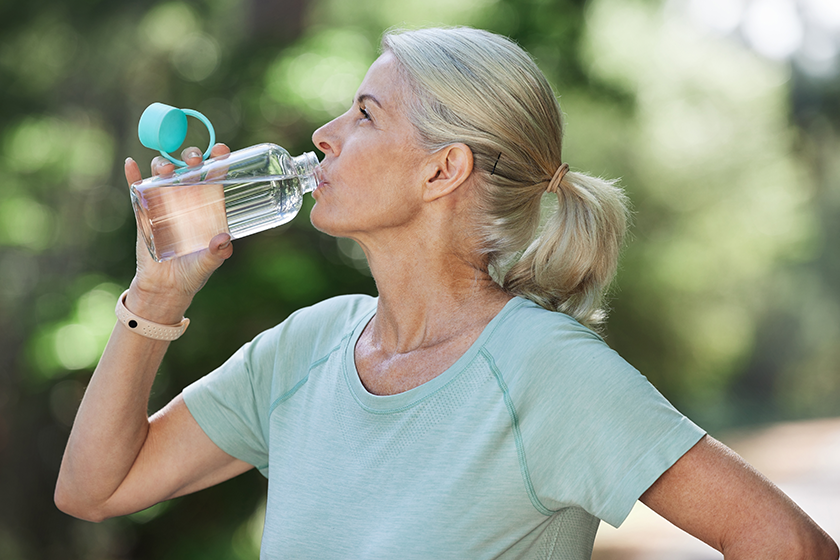As we embark on the journey of aging, one of the key priorities becomes ensuring our brain health remains robust and vibrant. Among the multitude of factors that contribute to cognitive well-being, hydration stands out as a fundamental yet often overlooked element. In the realm of retirement communities, where the focus is on creating a supportive and enriching environment for residents, family members, loved ones, and guests, understanding the connection between hydration and brain health is paramount. In this article, we delve into the significant role hydration plays in maintaining cognitive functions among residents, highlighting its importance within the context of a retirement community.
The Intricacies of Brain Health During Aging
Before we explore the link between hydration and brain health, it’s essential to comprehend the intricacies of cognitive changes that occur as we age. Our brains undergo a natural aging process that can lead to various changes in cognitive function. While some decline in memory and processing speed can be considered a normal part of aging, there are steps we can take to promote optimal brain health and potentially slow down the rate of decline.
Retirement communities are designed to offer an environment that supports the overall well-being of their residents, encompassing physical, emotional, and cognitive aspects. In this holistic approach to senior living, the emphasis on brain health becomes a crucial component.
Hydration: More Than Just Quenching Thirst
When we think of hydration, we often associate it with satisfying our thirst and maintaining bodily functions. However, the role of proper hydration extends far beyond this basic function. Water is essential for the proper functioning of every cell in our bodies, including our brain cells. In fact, the brain is composed of approximately 75% water. This high water content is a testament to the importance of hydration in maintaining optimal brain function.
In retirement communities, team members are well-versed in the significance of providing residents with adequate hydration. Whether through regular water breaks, hydration stations, or meal plans designed with fluid intake in mind, ensuring that residents remain hydrated is a priority. The relationship between hydration and brain health is particularly crucial in this context, as retirement communities strive to create an environment that supports residents in aging gracefully and maintaining their cognitive capacities.
The Brain-Dehydration Connection
Dehydration can have a pronounced impact on brain health, especially in adults. Even mild dehydration has been shown to lead to cognitive deficits, affecting mood, concentration, and overall cognitive performance. In a retirement community, where the goal is to enhance the quality of life for residents, addressing and preventing dehydration takes on heightened importance.
Research indicates that dehydration can lead to a decrease in brain volume, particularly in areas associated with memory and attention. Moreover, dehydration can disrupt the balance of electrolytes in the body, which play a crucial role in nerve signaling – a process essential for cognitive functions. Residents in retirement communities benefit not only from the access to hydration resources but also from the support and reminders provided by team members to ensure consistent fluid intake.
Hydration as a Foundation for Cognitive Resilience
Maintaining cognitive health in retirement is a shared goal for residents, family members, and the retirement community team. Hydration serves as a foundational pillar in achieving this goal. By consistently staying hydrated, residents can bolster their cognitive resilience and potentially reduce the risk of cognitive decline.
Proper hydration supports blood flow to the brain, delivering essential nutrients and oxygen required for optimal function. Additionally, staying hydrated aids in the removal of waste products from brain cells. This cleansing process is vital for preventing the buildup of toxins that can contribute to cognitive impairment.
In the retirement community setting, creating an environment that encourages and facilitates hydration is of utmost importance. From readily available water sources to engaging and exclusive senior living programs that promote hydration, the community’s commitment to cognitive well-being is reflected in every facet of its operations.
Practical Steps for Promoting Hydration and Brain Health
Within the retirement community, promoting hydration and brain health involves a collaborative effort between residents, family members, loved ones, and team members. Here are some practical steps that can be taken to ensure residents stay properly hydrated:
Hydration Stations: Establishing hydration stations throughout the community provides easy access to water and encourages regular hydration.
Personalized Hydration Plans: Working with healthcare professionals, team members can develop personalized hydration plans that consider individual needs and preferences.
Engaging Programs: Hosting events that highlight the importance of hydration and offer engaging activities can create a sense of community around staying hydrated.
Incorporating Hydration into Daily Routines: Encouraging residents to incorporate hydration into their daily routines, such as drinking water before meals, can be beneficial.
Education and Awareness: Providing information about the connection between hydration and brain health can empower residents to take an active role in their cognitive well-being.
In the realm of retirement communities, where the focus is on creating an environment that fosters holistic well-being for residents, family members, loved ones, and guests, understanding the profound connection between hydration and brain health is essential. As we age, the brain’s resilience becomes increasingly significant, and hydration plays a pivotal role in maintaining cognitive functions.







